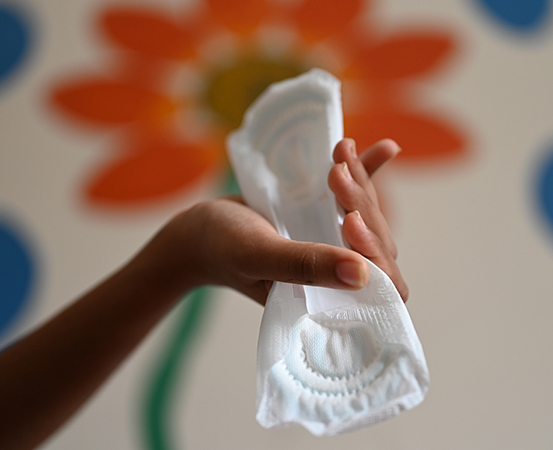Do girls and women remember the date of their last period? Well, most don’t. They find it tough to keep track of when the monthly menstrual cycle begins. For many, going through it month after month and grappling with the side effects such as cramping, bloating and feeling unwell make the dates slip their mind.

Also, not all women experience period discomfort — for some, it could be as ordinary as perhaps brushing their teeth.
Doctors say it is important to keep a track of not just the dates, but also the technicalities involved such as the duration, the flow and any new effects one might experience in their monthly period cycle.
“Irregular periods with prolonged and heavy bleeding can be symptoms of any other underlying issue and should be addressed by your doctor to prevent any future issues or problems,” says Dr Suhasini Inamdar, consultant, obstetrician and gynaecologist, Motherhood Hospitals, Bengaluru.
Joyeeta Das, 45, a homemaker in Delhi, had no clue she had entered into menopause until she started bleeding twice in a month and went to her gynaecologist for a check-up. “It was only after this episode that I realised I should have kept track of my periods,” says Das, who now has a period-tracking app installed on her phone. “If I had got check-ups done earlier for my heavy bleeding due to fibroids, that could have got treated on time too.”
A 2019 article in Scientific American asks the oft-repeated question, ‘What is the point of a period?’
It says that scientists are just beginning to grapple with questions such as whether it is healthy to have many periods throughout a lifetime and whether suppressing menstruation through birth control is beneficial.
Many studies show that as many as one in five women experiences menstrual cramps severe enough to limit their daily life. About one in 16 worldwide suffers from endometriosis, a disease where menstrual blood and tissue migrate outside a woman’s uterus and form painful lesions in her pelvic cavity. And one in 10 women has polycystic ovarian syndrome, a hormonal imbalance that disrupts a woman’s cycle and is a leading cause of infertility.
Period FAQs and the normal menstrual cycle
The menstrual cycle is a highly individualised one — it differs from women to woman and changes with age.
As to how many days should a ‘normal’ period length be, Dr Inamdar says, “The length of your period is counted with the number of days of bleeding, which typically lasts four to five days for many but longer for some women. Menstrual cycles are an indication of your reproductive health and it’s normal to have a few irregularities sometimes.
“But if you are experiencing prolonged or heavy periods for quite some time, then it can be an indication of iron deficiency. If the length of your period cycle is short, then it is generally less of a concern but [it] can be an indication of an underlying health condition in some rare cases.”
She says the length of period cycles depends on many factors such as age, hormones and overall health.
*For adults: The typical length of period cycles of adult women (who are not using any form of hormonal birth control or intrauterine device) is eight days.
*During menarche (when a girl attains her puberty): It is normal to experience irregular periods and heavy flow during this time. Typical period length can last two to eight days.
*If on birth control measures: Using birth control like the pill, vaginal ring or patch control — which affect the release and regulation of oestrogen and progesterone within the body — affects menstruation. The number of days of the period cycle also depend on the type of birth control measure a woman is using.

















